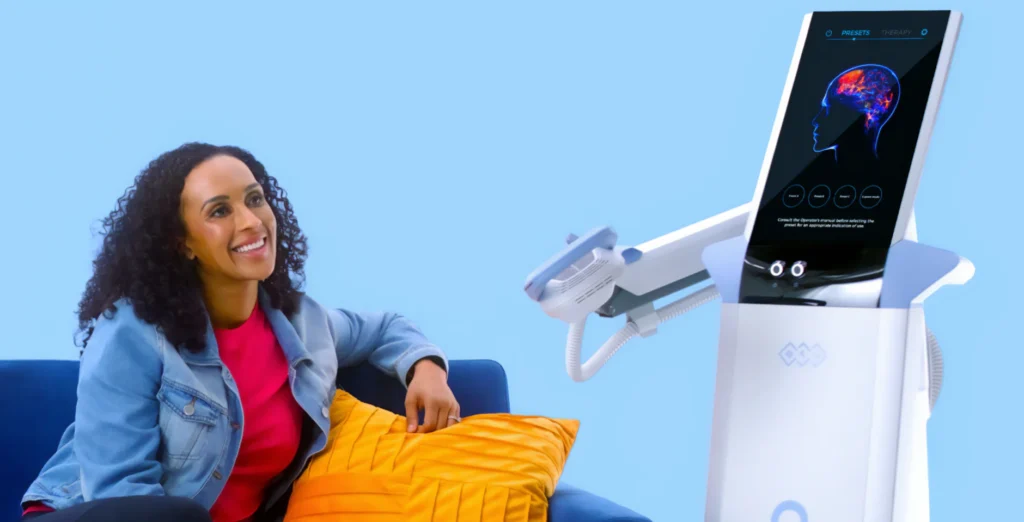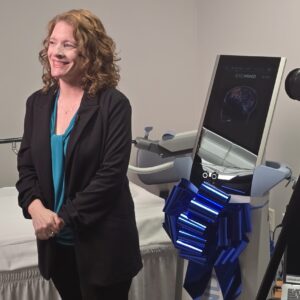
Written by: Samantha Davis, PMHNP-BC, FNP-C | Psychiatric Nurse Practitioner | Miramont Wellness Centers
What is TMS Therapy?
Transcranial Magnetic Stimulation (TMS) is transforming how we treat depression and other mental health conditions. Unlike traditional treatments like medication or talk therapy, TMS targets the brain directly—without drugs, surgery, or downtime.
TMS is FDA-approved for major depressive disorder (MDD), particularly in patients who haven’t responded to antidepressants. It’s also shown promise in treating obsessive-compulsive disorder (OCD), anxiety, PTSD, and even aiding in smoking cessation. So how does it work?
How TMS Works
TMS uses magnetic pulses to stimulate underactive areas of the brain, particularly in the prefrontal cortex—the region responsible for mood regulation, decision-making, and emotional control. These pulses are delivered through a coil placed gently on the scalp. Most patients describe the sensation as a light tapping or clicking sound.
The idea is simple but powerful: by activating specific areas of the brain, TMS can help “rewire” neural pathways, leading to improved mood, focus, and emotional resilience over time. It’s like physical therapy for your brain.
Session Details and Expectations
- Each treatment lasts about 20 minutes.
- Typical protocols run five days a week for six weeks.
- No sedation or recovery time required; you can drive yourself and resume normal activities immediately.
- Common side effects include mild scalp discomfort or a slight headache post-session.
Advantages and Side Effects
One of the most significant advantages of TMS is that it’s non-invasive and does not involve systemic medication. For individuals who can’t tolerate antidepressants or who experience unwanted side effects, TMS offers a safe and effective alternative.
Research and Effectiveness
Research shows that up to 70% of patients with treatment-resistant depression experience significant improvement with TMS, and many maintain those benefits long-term. While it’s not a cure-all, TMS is a powerful tool in the mental health toolbox. As more insurance providers begin to cover it, access to this life-changing therapy is expanding. Whether you’re exploring options for yourself or a loved one, TMS offers hope and science-backed results when traditional treatments haven’t been enough.

Samantha Davis, PMHNP-BC, FNP-C, Psychiatric Nurse Practitioner
Learn More and Next Steps
Tune in to our “What’s Up, Doc?” podcast episode on [Introducing Exomind] to hear Dr. Bender discuss this exciting next-generation TMS therapy.
Watch our [9News Colorado & Company segment] on cutting-edge wellness tech at Miramont.
Join us at our [Exomind Launch Party on August 6th, 4–7 PM] to see demonstrations, enjoy refreshments, and take advantage of special pricing.
Ready to explore TMS therapy for yourself or a loved one?
[Contact us] to schedule a consultation.

